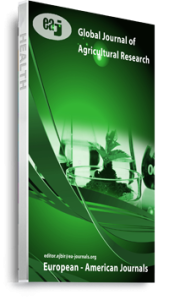The study examined resource-use and allocative efficiency of paddy rice production in the Niger Delta Region of Nigeria with the view to determining the profitability, resource productivity and allocative efficiency of inputs used in rice production in the study area. The data for the study was collected from 300 rice farmers in three out of nine states in the region based on their intensity in rice production in the study area using multistage and simple random sampling technique.Data analysis was carried out using descriptive statistics, profitability model and allocative efficiency model. Rice production was found to be profitable as farmers realized N319,046.84/ha as Gross Margin in the study area. Result of the allocative efficiency of inputs confirmed thatrice producers in the area did not attain optimal allocative efficiency, seed input (0.94) has the highest allocative efficiency while land input (0.05) was the least allocative efficient input. Emergent from the findings, it was recommended that concerted efforts from individual rice farmers and government to establish farmers’ participatory extension service to ensure timely supply and proper use of rice farm inputs in order to improve farmers’ resource use efficiency.
Keywords: Allocative Efficiency, Niger-Delta, Nigeria, Paddy Rice, Resource Use

